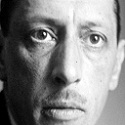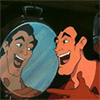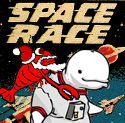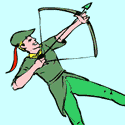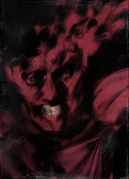|
Roadside_Picnic posted:Can anybody recommend a good general history of New York City for the 19th and 20th centuries? Some focus on immigration and neighborhoods would be great but it's by no means a must. What you want is Gotham: A History of New York City to 1898 by Edwin G. Burrows and Mike Wallace. A warning: it is huge, but it won't be surpassed for a long time.
|
|
|
|

|
| # ? May 14, 2024 06:42 |
|
Having just finished 'Bury My Heart At Wounded Knee' and developing a suitable sense of outrage, I'm after recommendations for a more balanced view of the overall picture during that frontier wars period. 'Bury My Heart...' was admittedly quite one sided. Also anything that goes into Native American history/civil rights from that period leading up to the present would be great. As a Brit, it's a subject I feel pretty under informed on.
|
|
|
|
Wait? Are you asking for a book to justify the death and suffering of a group of people just because they were located somewhere close to another group of people? Because that's kinda like asking for a book that argues that the holocaust was not that bad.
|
|
|
|
I recall one book that actively defended Andrew Jackson's policy against the native population. Andrew Jackson and His Indian Wars . The author's reasoning was poor if I recall correctly. He justified it all by saying that the culture of the tribes would be diluted once they were overrun by the Americans. Yes, by uprooting and moving a people from their homeland and placing them in what was someone else's homeland, Andrew Jackson was saving their cultural identity. This is the compelling argument for displacing and torturing a people.
|
|
|
|
Oh no, that's not at all what I'm after. Sorry you even thought that. I was pretty well horrified after reading Wounded Knee. There's certainly no justification for those kind of policies. I guess to define it better, I'm after an overview of how the US was forming as a nation during that period. Everything East of the frontiers i guess.
|
|
|
|
Harry Haddock posted:Oh no, that's not at all what I'm after. Sorry you even thought that. I was pretty well horrified after reading Wounded Knee. There's certainly no justification for those kind of policies. I guess to define it better, I'm after an overview of how the US was forming as a nation during that period. Everything East of the frontiers i guess. It's certainly not a conventional history book, but Flashman and the Redskins gives a white/foreign perspective on westward expansion in two eras, especially the Black Hills dispute and it climaxes at Greasy Grass.
|
|
|
|
Arbite posted:It's certainly not a conventional history book, but Flashman and the Redskins gives a white/foreign perspective on westward expansion in two eras, especially the Black Hills dispute and it climaxes at Greasy Grass. Cheers for the recommendation. Like you say, not conventional history, but could be worth a look. Just to reiterate, i'm not looking for anything that tries to justify what happened, just a good account of what and why it happened. Searching through Amazon though, it looks like books on the subject are few and far between. Any suggestions for books on native American history post 1890, particularly leading up to today? Anyone know if Wounded Knee 1973: Still Bleeding by Stew Magnuson is worth a read? As for what's next on the reading list. I'm about to get into Rubicon by Tom Holland, followed by The Popes by John Julius Norwich. A bit of swotting before a trip to Rome in June.
|
|
|
|
I read a poo poo ton of historical books, these are 4 of the ones I did not find horrible and I imagine goons would like: -The always popular Under the Loving Care of the Fatherly Leader: North Korea and the Kim Dynasty is a great portrayal of North Korea and how it was for the average person there. It does end before the current Kim so skip it if you only care about him. -The Odyssey of Ibn Battuta Uncommon Tales of a Medieval Adventurer. Its a great book about the travels of Ibn Battuta and it does a lot to contextualize it. Short and easy read and it manages to make a book that was originally pretty dry very entertaining. Loads of stuff about cultural differences as well. -Vietnam: The Definitive Oral History Told from All Sides. Fantastic piece of oral history of the Vietnam war and events surrounding it before during and after. It portrays the war from both sides and from people on different 'ranks' so it gives a great varied view of the war. I personally ended up really feeling for the Vietnamese after the book. - A Century of Spies: Intelligence in the Twentieth Century. A bit textbooky but entertaining enough and considering the subject matter more neutral then I expected. Currently planning to read Zheng He: China and the Oceans in the Early Ming, 1405–1433 which is about a Chinese 'explorer' and I've heard a lot of good things about it. Davincie fucked around with this message at 19:32 on Apr 4, 2013 |
|
|
|
I've always been interested in the concept of Military History books focused on maps (and related images), but can never find any although I have to imagine they exist for at least Napoleonics/WWI/WWII. I've read books in every other style, but nothing in the military history category that matches up. Anyone know of any or can recommend something? Edit: Actually since I'm posting already, I wouldn't mind a recommendation on a broad but shallow history of Russia. I recently picked up Great Courses lecture on the subject from 1600+, but I just couldn't handle the lecturer and am looking for something to fill in for it. nessin fucked around with this message at 21:53 on Apr 4, 2013 |
|
|
|
Roadside_Picnic posted:Can anybody recommend a good general history of New York City for the 19th and 20th centuries? Some focus on immigration and neighborhoods would be great but it's by no means a must. Five Points by Tyler Anbinder. Essentially a history of poor immigrant living in the mid to late 19th century. Things like 15 people living in a two room apartment with no windows.
|
|
|
|
Robert Caro, The Power Broker is the definitive text on how NYC became what it was in the 20th C.
|
|
|
|
Vogler posted:I only remember Hitler and Stalin: Parallel Lives by Alan Bullock. I see that it has gotten good ratings on amazon, so I will probably go for that one. One book I need to recommend is The Dictators, a comparative history between Nazi Germany and Stalin's Russia. It actually does a good job of showing the similarities and differences between the two regimes.
|
|
|
|
Harry Haddock posted:Also anything that goes into Native American history/civil rights from that period leading up to the present would be great. A Different Mirror by Takaki has a broad overview of relations between the US Government and Native Americans past the 1880s. I'm currently reading the "for young adults" version to find good passages for my students and it's a nice quick read.
|
|
|
|
Looking for a recommendation for a book about John F. Kennedy, a biography is ok but more specifically interested in the subject of JFK as a cold warrior. Would like to read about his part in the Space Race, the Cuban Missile Crisis, and involvement into Vietnam.
|
|
|
|
Does anyone have any thoughts about Michael Hill's Elihu Washburne A friend gave it to me recently as a late christmas gift, and it looked interesting but I read the dust jacket and it seems like the book is hell bent on depicting the Communards as blood thirsty latter day Robespierres. I was hoping if anyone had any idea about the bias in the book and the author or if its worth reading? I would suggest reading Monsters in America:Our Historical Obsession with the Hideous and the Haunting by W. Scott Poole. Its a great history book about America and our love of horror fiction from the colonial period to the modern day. I thought it was superior to Asama's On Monsters which was fine in its own right but is more about what monsters meant to humans as symbols through history. Though I'm a bit biased against him when I saw he wrote a book called Against Fairness which the book description seems near sociopathic to me. So I'm very biased on this matter.
|
|
|
|
Could anyone give me a recommendation for a biography of Lenin? I've realized I know very little about him.
|
|
|
|
Stravinsky posted:I recall one book that actively defended Andrew Jackson's policy against the native population. Andrew Jackson and His Indian Wars . The author's reasoning was poor if I recall correctly. He justified it all by saying that the culture of the tribes would be diluted once they were overrun by the Americans. Yes, by uprooting and moving a people from their homeland and placing them in what was someone else's homeland, Andrew Jackson was saving their cultural identity. This is the compelling argument for displacing and torturing a people. That's the reason that the Cherokee and Choctaw nations held out as long as they did though, so the book isn't inaccurate in its conclusion. The answer to the mystery of 'where did they all go' is simply that they were largely assimilated and bred out. Between that, separation to Oklahoma, and the reservation, the last is definitely the worst. Somewhat on that subject is So Far From God: The US War With Mexico by John SD Eisenhower (son of the President). It is one of the neglected parts of American history, and the most ambitious move during the Manifest Destiny. Santa Ana is portrayed not as the stereotypical villain as he is seen in Mexico, nor as the bumbling tinpot dictator as he is seen in the US, but simply as a man with his own flaws who was unable to manipulate the forces around him. Eisenhower is very easy to read and entertaining. His The Bitter Woods is actually the best introductory book to the Battle of the Ardennes for the same reason.
|
|
|
|
stawk Archer posted:That's the reason that the Cherokee and Choctaw nations held out as long as they did though, so the book isn't inaccurate in its conclusion. The answer to the mystery of 'where did they all go' is simply that they were largely assimilated and bred out. Between that, separation to Oklahoma, and the reservation, the last is definitely the worst. Highly racist policy happens to extend the life of a culture to be brutalised in the future is pretty much the stupidest way to justify things. Its not like it was just a nice camping hike to go move which was totally cool with everyone. Plus they did not just go quietly into the night and were "civilised" later on. Where they all went was eventually to reservations or "assimilated" via education camps (boarding schools) where they were brought out of their nasty savage ways and their culture. But then again I am just a social justice teen tumblr. Anyone read Crimea by Trevor Boyle? What I really want to know is if it falls into the trap most war history books do where its all maps of glorious army's in battle and not touching on the political meaning behind the events and the social impact.
|
|
|
|
I combed the thread a bit and didn't find anything, but forgive me if there's already been a recommendation: All this poo poo with the DPRK has me curious about the Korean Peninsula. I have Mao's Great Famine so I'm somewhat informed about the rise of Communist China. It only mentions China's relationship with North Korea briefly so I'd like to know more. Any suggestions? Obviously Un hasn't done much except wag his nuclear penis in front of everyone but I'd like something that covers a significant amount of time. Thank you!
|
|
|
|
TheHoosier posted:I combed the thread a bit and didn't find anything, but forgive me if there's already been a recommendation: Under the Loving Care of the Fatherly Leader: North Korea and the Kim Dynasty as suggested by davinci is a good read if you want to learn more about communist Korea and the men who have been leading it. Tomorrow I will more than likely be talking with someone who is specializing in Asian history so I will see if I can get a recommendation off of her.
|
|
|
|
Stravinsky posted:Under the Loving Care of the Fatherly Leader: North Korea and the Kim Dynasty as suggested by davinci is a good read if you want to learn more about communist Korea and the men who have been leading it. Totally seconded. The author has spent a large part of his life involved in the study of North Korea, and although it is already slightly dated, it is the best comprehensive work I've read on the subject. One of the larger histories that is almost no fluff. There are some notable chapters, such as "We shall become bullets and bombs," which explains how the world's largest obsolete army is actually more capable than, I think, a lot of people are willing to admit. Also is a chapter (I forget the name) about gangs that form around regions and schools, which may not be the most important thing in the world to an outsider, but give a little more context to the daily life inside the country. The public face of the country - its propaganda speakers, starvation, rigid loyalty to the personality cult - is the most well known, but the culture that has developed around all of that is good to study as well. The Aquariums of Pyongyang is a good exile's account of the most famous and sinister aspects of the DPRK. You may not like it, Stravinsky, because of where it stands politically, but it's worth a read for being from the perspective of someone who went from being in favor to becoming a non-person, and eventually an exile. But whatever the case, it's not an overly long or tedious book.
|
|
|
|
I have been informed that Korea Old and New: a History is the book on Korea for a total overview. Each section is written by someone who is an expert in that time period of Korean history so that there isn't any one part that falls by the wayside because the author didn't care enough about the time/events he is currently writing about. stawk Archer posted:The Aquariums of Pyongyang is a good exile's account of the most famous and sinister aspects of the DPRK. You may not like it, Stravinsky, because of where it stands politically, but it's worth a read for being from the perspective of someone who went from being in favor to becoming a non-person, and eventually an exile. But whatever the case, it's not an overly long or tedious book.
|
|
|
|
tweekinator posted:Could anyone give me a recommendation for a biography of Lenin? I've realized I know very little about him. Robert Service's one-volume treatment is decent enough although avoid his biographies on Stalin and Trotsky at all costs.
|
|
|
|
Seams posted:Robert Service's one-volume treatment is decent enough although avoid his biographies on Stalin and Trotsky at all costs. What’s wrong with his biographies of Stalin and Trotsky?
|
|
|
|
I just bought Edmund Wilson's To the Finland Station. It deals with a lot of people and ideas, including Jules Michelet, Henri de Saint-Simon, Robert Owen, Mikhail Bakunin, Anatole France, Karl Marx, Friedrich Engels, Leon Trotsky, and Vladimir Ilich Lenin. I got it becuase apparently Nabokov was a huge fan. Maybe you'll like it too.
|
|
|
|
I recently read Kissinger: 1973, The Crucial Year by Alistair Horne, not knowing anything about the author ahead of time, and I very quickly became skeptical of his approach to the subject and the way his politics came across incidentally. That being said, during that book he makes reference to his earlier work Small Earthquake in Chile: A Visit to Allende's South America in the course of a description of Chile in '73 that really intrigued me. Has anyone read that book, and if so can you tell me what you thought of it? Is there a better history of left-wing movements and governments in South America out there?
|
|
|
|
Thanks for the recommendations; I'll check them out!
|
|
|
|
Here's a tough one: anyone have suggestions for a book on the history of political nihilism? It was a movement in pre-communist Russia that argued that the system was so fundamentally broken that the only solution was to wipe it clean and start again. While I'm thinking about it, I would love to find a book on the history of philosophical nihilism. I suppose the closest to that I've seen is Zero: The Biography of a Dangerous Idea. As you might be able to guess, nihilism is a pet interest of mine.
|
|
|
|
dokmo posted:What you want is Gotham: A History of New York City to 1898 by Edwin G. Burrows and Mike Wallace. A warning: it is huge, but it won't be surpassed for a long time. Seconded, heartily. My copy from the library was soft-bound and it literally fell part to where I was just taking chunks of it with me on my commute by the end :S Soooo good, though, just rich with detail and readable and one of the best urban histories I've ever read. My only regret is that it was supposed to be Part 1 of a duo covering NYC to the present-ish day but I've seen no sign of Vol. 2 coming anytime soon.
|
|
|
|
Anyone read Kill Anything that Moves yet?
|
|
|
|
Can anyone recommend an accessible, not-incredibly long book on a specific European war from the Napoleonic wars to WWII? I am somewhat knowledgeable about the general history of the time periods, so something more specific and preferably narrative on one of the wars would be awesome. I guess I lack knowledge in the Napoleonic wars the most (and so would prefer books on that), but wouldn't mind any other war either. I really enjoyed Anthony Beevor's Stalingrad, even if it was a bit technical/academic at times.
|
|
|
|
Good timing I guess. Just did a paper that used Crimea by Trevor Boyle in it. It is pretty much the european version of the american civil war in that changing technology combined with obsolete tactics and strategy were on display along with giving a view as to what future wars would start to look like. I enjoyed it a lot.
|
|
|
|
Wait, Crimea is kinda long. Well if that deters you the look at The Russian Civil War by Evan Mawdsley. It covers a pretty neat conflict from its beginnings with the bolshevik hijacking of the revolution to the difficulties of fighting a war in a large country when all of your opponents were based in its extremities. I thought it did a pretty bang up job of displaying the reasons why the whites lost. Plus armoured attack trains.
|
|
|
Archer2338 posted:Can anyone recommend an accessible, not-incredibly long book on a specific European war from the Napoleonic wars to WWII? I am somewhat knowledgeable about the general history of the time periods, so something more specific and preferably narrative on one of the wars would be awesome. I guess I lack knowledge in the Napoleonic wars the most (and so would prefer books on that), but wouldn't mind any other war either. I really enjoyed Anthony Beevor's Stalingrad, even if it was a bit technical/academic at times. "The Guns of August" by Barbara Tuchman is pretty much mandatory reading if you're thinking of books on European war.
|
|
|
|
|
Any recommendations on some good books surrounding Portuguese history and it's colonies? Possibly about that rear end in a top hat Salazar as well? I also love books about the other sides of history in general. Like "Lies my teacher told me." Things that we're led to believe or how things get watered down, the losers side, etc Also Rome and Greece and everything around it. Don't care about a particular person or era. I just love reading little factoids about them.
|
|
|
|
Christoff posted:Also Rome and Greece and everything around it. Don't care about a particular person or era. I just love reading little factoids about them.
|
|
|
|
Christoff posted:Also Rome and Greece and everything around it. Don't care about a particular person or era. I just love reading little factoids about them. I'm a big fan of Plutarch's lives. He was a writer in the second century AD who wrote biographies comparing various Greek figures to famous Romans (Alexander the Great and Julius Caesar, for example). Penguin has a few good editions out there, if you don't mind them separating the lives by era. A good starting place is he Fall of the Roman Republic, which covers Caesar, Cicero, Sulla and some other major figures.
|
|
|
|
Anyone have good suggestions for books about the Thirty Years War? Thanks in advance, goons!
|
|
|
|
Anyone know of anything good on Canada's contribution to both World Wars? More interested in 2 right now, but 1 is great too.
|
|
|
|
|

|
| # ? May 14, 2024 06:42 |
|
This might be more religion than history, but anyone have recommendations for the history of Quakers/Society of Friends, either England or America?Christoff posted:I also love books about the other sides of history in general. Like "Lies my teacher told me." Things that we're led to believe or how things get watered down, the losers side, etc Loewen's followup, Lies Across America, is pretty good - it tackles the inaccuracies in public markers, monuments, plaques, and so forth. Also I have heard his Sundown Towns is excellent. You might also try Howard Zinn's People's History of the US for other sides of history. Recommendation to all interested in US history: Joy Hakim's A History of Us look like textbooks, and they definitely could be used as textbooks, but read as a great narrative. I was recently given the 1945-Now book (#10), and it reads well for people of all ages. Also she's under contract to continue updating book 10 until she dies, so it even includes chapters on the Obama presidency so far and the 2008 economic crisis. I would definitely recommend reading the series if your local library has them. I decided to pick up all 10 used on Amazon, the whole thing cost me about $45.
|
|
|





